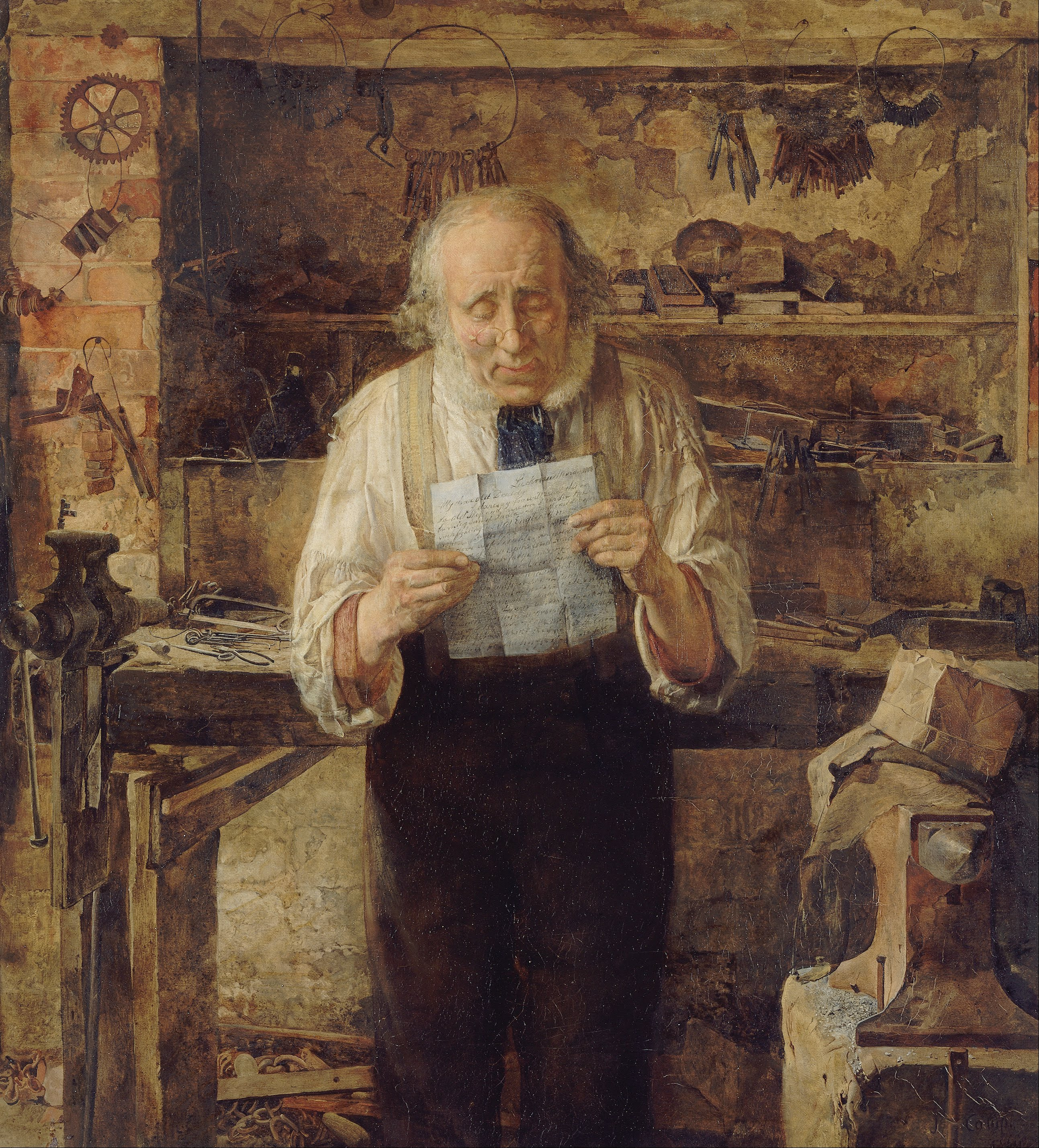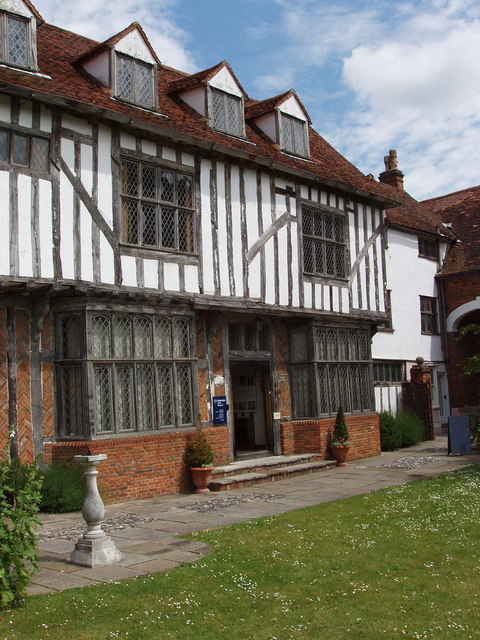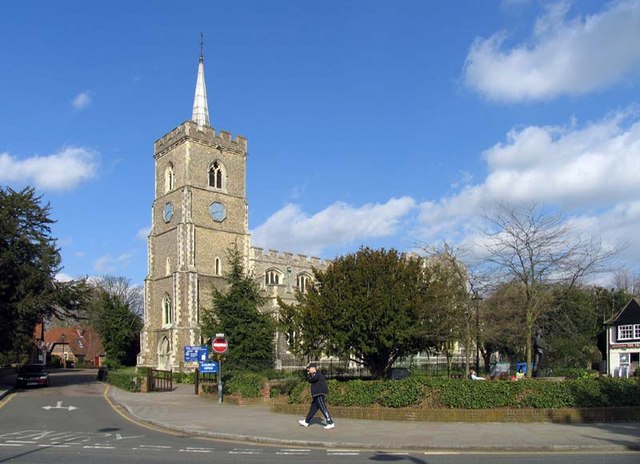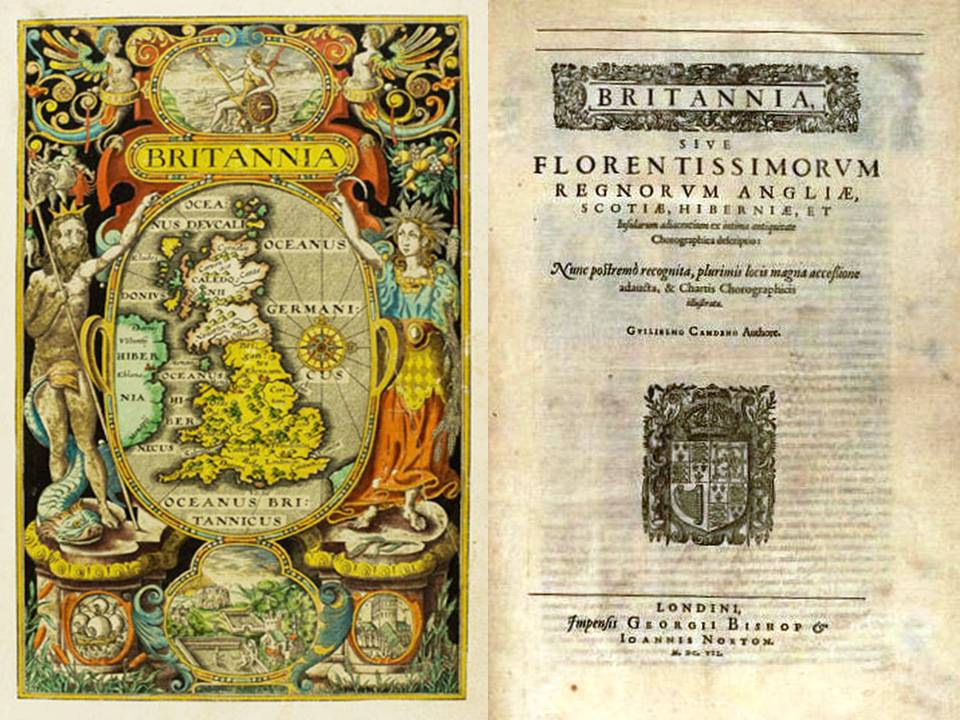|
John Chamberlain (letter Writer)
John Chamberlain (1553–1628) was the author of a series of letters written in England from 1597 to 1626, notable for their historical value and their literary qualities. In the view of historian Wallace Notestein, Chamberlain's letters "constitute the first considerable body of letters in English history and literature that the modern reader can easily follow". They are an essential source for scholars who study the period. Life Chamberlain's father Richard was a successful ironmonger, also Sheriff of London and twice Master of the Worshipful Company of Ironmongers, who left his son enough money to live on for the rest of his life without needing to earn a living. His mother, Anne, was the daughter of Robert Downe, an ironmonger and alderman. Though unambitious for himself, Chamberlain used his network of friends in high places to assist the career of Dudley Carleton, who rose from a minor position in the diplomatic service to become Secretary of State shortly after Chamber ... [...More Info...] [...Related Items...] OR: [Wikipedia] [Google] [Baidu] |
Letter (message)
A letter is a written message conveyed from one person (or group of people) to another through a medium. Something epistolary means that it is a form of letter writing. The term usually excludes written material intended to be read in its original form by large numbers of people, such as newspapers and placards, although even these may include material in the form of an "open letter". The typical form of a letter for many centuries, and the archetypal concept even today, is a sheet (or several sheets) of paper that is sent to a correspondent through a postal system. A letter can be formal or informal, depending on its audience and purpose. Besides being a means of communication and a store of information, letter writing has played a role in the reproduction of writing as an art throughout history. Letters have been sent since antiquity and are mentioned in the ''Iliad''. Historians Herodotus and Thucydides mention and use letters in their writings. History of letter writing Hi ... [...More Info...] [...Related Items...] OR: [Wikipedia] [Google] [Baidu] |
Henry Wotton
Sir Henry Wotton (; 30 March 1568 – December 1639) was an English author, diplomat and politician who sat in the House of Commons in 1614 and 1625. When on a mission to Augsburg, in 1604, he famously said, "An ambassador is an honest gentleman sent to lie abroad for the good of his country". Life The son of Thomas Wotton (1521–1587) and his second wife, Elionora Finch, Henry was the youngest brother of Edward Wotton, 1st Baron Wotton, and grandnephew of the diplomat Nicholas Wotton and Margaret Wotton, Marchioness of Dorset. Henry was born at Bocton Hall in the parish of Bocton or Boughton Malherbe, Kent. He was educated at Winchester College and at New College, Oxford, where he matriculated on 5 June 1584, alongside John Hoskins. Two years later he moved to Queen's College, graduating in 1588. At Oxford he was the friend of Alberico Gentili, then professor of Civil Law, and of John Donne. During his residence at Queen's, he wrote a play, ''Tancredo'', which has n ... [...More Info...] [...Related Items...] OR: [Wikipedia] [Google] [Baidu] |
Francis Bacon
Francis Bacon, 1st Viscount St Alban (; 22 January 1561 – 9 April 1626), also known as Lord Verulam, was an English philosopher and statesman who served as Attorney General and Lord Chancellor of England. Bacon led the advancement of both natural philosophy and the scientific method and his works remained influential even in the late stages of the Scientific Revolution. Bacon has been called the father of empiricism. He argued for the possibility of scientific knowledge based only upon inductive reasoning and careful observation of events in nature. He believed that science could be achieved by the use of a sceptical and methodical approach whereby scientists aim to avoid misleading themselves. Although his most specific proposals about such a method, the Baconian method, did not have long-lasting influence, the general idea of the importance and possibility of a sceptical methodology makes Bacon one of the later founders of the scientific method. His portion of the method ... [...More Info...] [...Related Items...] OR: [Wikipedia] [Google] [Baidu] |
Robert Cecil, 1st Earl Of Salisbury
Robert Cecil, 1st Earl of Salisbury, (1 June 156324 May 1612), was an English statesman noted for his direction of the government during the Union of the Crowns, as Tudor England gave way to Stuart period, Stuart rule (1603). Lord Salisbury served as the Secretary of State (England), Secretary of State of England (1596–1612) and Lord High Treasurer (1608–1612), succeeding his William Cecil, 1st Baron Burghley, father as Queen Elizabeth I's Lord Privy Seal and remaining in power during the first nine years of King James VI and I, James I's reign until his own death. The principal discoverer of the Gunpowder Plot of 1605, Robert Cecil remains a controversial historic figure as it is still debated at what point he first learned of the plot and to what extent he acted as an ''agent provocateur''. Early life and family Cecil (created Earl of Salisbury in 1605) was the younger son of William Cecil, 1st Baron Burghley by his second wife, Mildred Cooke, eldest daughter of Sir An ... [...More Info...] [...Related Items...] OR: [Wikipedia] [Google] [Baidu] |
Walter Raleigh
Sir Walter Raleigh (; – 29 October 1618) was an English statesman, soldier, writer and explorer. One of the most notable figures of the Elizabethan era, he played a leading part in English colonisation of North America, suppressed rebellion in Ireland, helped defend England against the Spanish Armada and held political positions under Elizabeth I. Raleigh was born to a Protestant family in Devon, the son of Walter Raleigh and Catherine Champernowne. He was the younger half-brother of Sir Humphrey Gilbert and a cousin of Sir Richard Grenville. Little is known of his early life, though in his late teens he spent some time in France taking part in the religious civil wars. In his 20s he took part in the suppression of rebellion in the colonisation of Ireland; he also participated in the siege of Smerwick. Later, he became a landlord of property in Ireland and mayor of Youghal in East Munster, where his house still stands in Myrtle Grove. He rose rapidly in the favour of Quee ... [...More Info...] [...Related Items...] OR: [Wikipedia] [Google] [Baidu] |
Sir Henry Wotton (1568-1639), Studio Of Michiel Jansz Van Mierevelt
Sir Henry Wotton (; 30 March 1568 – December 1639) was an English author, diplomat and politician who sat in the House of Commons in 1614 and 1625. When on a mission to Augsburg, in 1604, he famously said, "An ambassador is an honest gentleman sent to lie abroad for the good of his country". Life The son of Thomas Wotton (1521–1587) and his second wife, Elionora Finch, Henry was the youngest brother of Edward Wotton, 1st Baron Wotton, and grandnephew of the diplomat Nicholas Wotton and Margaret Wotton, Marchioness of Dorset. Henry was born at Bocton Hall in the parish of Bocton or Boughton Malherbe, Kent. He was educated at Winchester College and at New College, Oxford, where he matriculated on 5 June 1584, alongside John Hoskins. Two years later he moved to Queen's College, graduating in 1588. At Oxford he was the friend of Alberico Gentili, then professor of Civil Law, and of John Donne. During his residence at Queen's, he wrote a play, ''Tancredo'', which has not ... [...More Info...] [...Related Items...] OR: [Wikipedia] [Google] [Baidu] |
William Gilbert (astronomer)
William Gilbert (; 24 May 1544? – 30 November 1603), also known as Gilberd, was an English physician, physicist and natural philosopher. He passionately rejected both the prevailing Aristotelian philosophy and the Scholastic method of university teaching. He is remembered today largely for his book ''De Magnete'' (1600). A unit of magnetomotive force, also known as magnetic potential, was named the ''Gilbert'' in his honour. Life and work Gilbert was born in Colchester to Jerome Gilberd, a borough recorder. He was educated at St John's College, Cambridge. After gaining his MD from Cambridge in 1569, and a short spell as bursar of St John's College, he left to practice medicine in London and travelled on the continent. In 1573, he was elected a Fellow of the Royal College of Physicians. In 1600 he was elected President of the college.Mottelay, P. Fleury (1893). "Biographical memoir". In He was Elizabeth I's own physician from 1601 until her death in 1603, and James ... [...More Info...] [...Related Items...] OR: [Wikipedia] [Google] [Baidu] |
Natural Philosopher
Natural philosophy or philosophy of nature (from Latin ''philosophia naturalis'') is the philosophical study of physics Physics is the natural science that studies matter, its fundamental constituents, its motion and behavior through space and time, and the related entities of energy and force. "Physical science is that department of knowledge which r ..., that is, nature and the physical universe. It was dominant before the development of modern science. From the ancient world (at least since Aristotle) until the 19th century, ''natural philosophy'' was the common term for the study of physics (nature), a broad term that included botany, zoology, anthropology, and chemistry as well as what we now call physics. It was in the 19th century that the concept of science received its modern shape, with different subjects within science emerging, such as astronomy, biology, and physics. Institutions and communities devoted to science were founded. Isaac Newton's book ... [...More Info...] [...Related Items...] OR: [Wikipedia] [Google] [Baidu] |
Knebworth House
Knebworth House is an English country house in the parish of Knebworth in Hertfordshire, England. It is a Grade II* listed building. Its gardens are also listed Grade II* on the Register of Historic Parks and Gardens. In its surrounding park is the medieval St. Mary's Church and the Lytton family mausoleum. It was the seat of the Earl of Lytton (also Viscount Knebworth), and now the house of the family of the Baron Cobbold of Knebworth. The grounds are home to the Knebworth Festival, a recurring open-air rock and pop concert held since 1974, and until 2014 was home to another hard rock festival, Sonisphere. History The home of the Lytton family since 1490, when Thomas Bourchier sold the reversion of the manor to Sir Robert Lytton, Knebworth House was originally a red-brick Late Gothic manor house, built round a central court as an open square. In 1813-16 the house was reduced to its west wing, which was remodelled in a Tudor Gothic style by John Biagio Rebecca for Mrs Bulw ... [...More Info...] [...Related Items...] OR: [Wikipedia] [Google] [Baidu] |
Farleigh Wallop
Farleigh Wallop is a small village and civil parish in Hampshire, England, approximately south of Basingstoke on the slopes of Farleigh Hill (208 m). The parish includes about . Since 1486, Farleigh Wallop has been the home of the Wallop family, including John Wallop, Henry Wallop, and Gerard Wallop, 9th Earl of Portsmouth, whose seat, Farleigh House Farleigh House, or Farleigh Castle, sometimes called Farleigh New Castle, is a large English country house in the county of Somerset, formerly the centre of the Farleigh Hungerford estate. Much of the stone to build it came from the nearby Farlei ..., is in the village. References External links "Parishes: Farleigh Wallop", A History of the County of Hampshire: Volume 3 (1908), pp. 364-366, British History Online {{authority control ... [...More Info...] [...Related Items...] OR: [Wikipedia] [Google] [Baidu] |
Ware, Hertfordshire
Ware is a town in Hertfordshire, England close to the county town of Hertford. It is also a civil parishes in England, civil parish in East Hertfordshire district. Location The town lies on the north–south A10 road (Great Britain), A10 road which is partly shared with the east–west A414 road, A414 (for Hertford to the west and Harlow to the east). There is a large Kingsmead Viaduct, viaduct over the River Lee (England), River Lea at Kings Meads. The £3.6m two-mile bypass opened on 17 January 1979. At the north end of the bypass is the Wodson Park Sports and Leisure Centre and Hanbury Manor, a hotel and country club. The former route of the A10 through the town is now the A1170. The Ware railway station, railway station is on the Hertford East Branch Line and operated by Greater Anglia (train operating company), Greater Anglia and is on a short single track section of the otherwise double track line. History Archaeology has shown that Ware has been occupied since at least t ... [...More Info...] [...Related Items...] OR: [Wikipedia] [Google] [Baidu] |
William Camden
William Camden (2 May 1551 – 9 November 1623) was an English antiquarian, historian, topographer, and herald, best known as author of ''Britannia'', the first chorographical survey of the islands of Great Britain and Ireland, and the ''Annales'', the first detailed historical account of the reign of Elizabeth I of England. Early years Camden was born in London. His father Sampson Camden was a member of The Worshipful Company of Painter-Stainers. He attended Christ's Hospital and St Paul's School, and in 1566 entered Oxford (Magdalen College, Broadgates Hall, and finally Christ Church). At Christ Church, he became acquainted with Philip Sidney, who encouraged Camden's antiquarian interests. He returned to London in 1571 without a degree. In 1575, he became Usher of Westminster School, a position that gave him the freedom to travel and pursue his antiquarian researches during school vacations. ''Britannia'' In 1577, with the encouragement of Abraham Ortelius, Camden bega ... [...More Info...] [...Related Items...] OR: [Wikipedia] [Google] [Baidu] |








